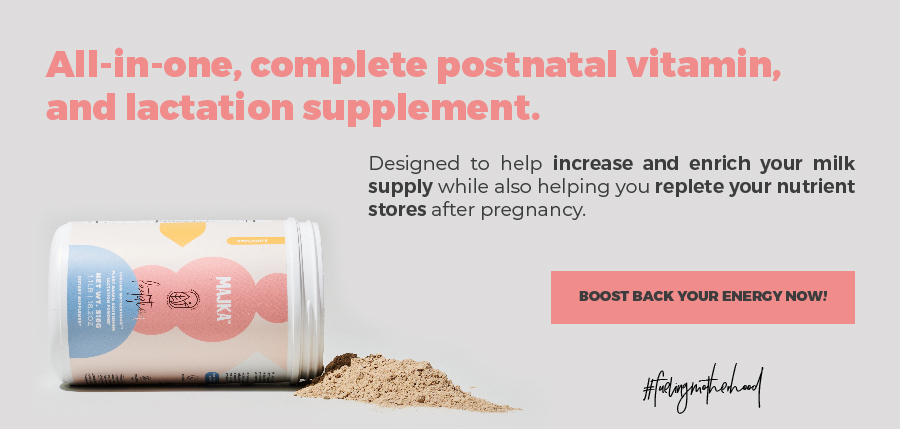
What helps my baby soothe stomach pain?
Watching your baby experience stomach issues can be distressing.
As your baby is growing and his/her digestive system is developing, it is normal to have some tummy troubles. Finding ways to soothe his/her discomfort can help you all feel happier.
Here we will talk about how to tell if stomach pain is what is bothering your baby, ways to avoid it, and effective strategies to alleviate your baby’s stomach pain and provide comfort.
How to tell if my baby has stomach pain?
As you get to know your baby, you´ll start to recognize if he/she is experiencing stomach pain. While your baby can’t directly tell you what he/she is feeling, he/she does give signals that something might be uncomfortable. Here are some common signs to look out for:
Stomach pain can make your baby instinctively bring his/her legs up towards his/her chest. It can also make your baby cry and seem irritable and restless. Your child may have difficulty finding a comfortable position and show discomfort through facial expressions.
Stomach pain can disrupt your baby’s sleep which can make him/her have trouble falling asleep or have restless sleep.
If your baby is having feeding difficulties (reluctance to eat, decreased appetite, or showing signs of discomfort during or after feedings) it could be a sign of stomach pain.
Stomach pain often comes with passing a lot of gas or struggling with frequent burping.
Monitoring your baby’s bowel movements can also help you determine what the issue might be. Stomach pain can affect your baby’s digestion and lead to changes like constipation, diarrhea, difficulty passing stools, or alterations in the frequency and consistency of his/her poop.
These signs alone may not mean your baby has stomach pain, but could be related to other factors as well. If you suspect that your baby is experiencing stomach pain, it’s always a good idea to consult with your pediatrician.
Can formula upset my baby’s stomach?
Each baby is different, and while many babies tolerate formula others may experience digestive issues or discomfort due to certain ingredients or factors (allergy to cow’s milk protein, difficulty digesting lactose, improper preparation, etc.)
When feeding with formula, it’s important to find the right choice for your baby regarding his/her age and characteristics, a healthcare professional can help you do this. It is also important to follow the manufacturer’s instructions for preparing it correctly and following your baby’s hunger cues to offer appropriate amounts of formula at each feeding.
If you suspect that formula is causing stomach pain in your baby, talk to your health care provider about switching to a different formula that is more suitable for your baby’s digestive needs.
What to avoid while breastfeeding if my baby has stomach pain?
If your breastfeeding baby is experiencing stomach pain, there are certain things you can try avoiding to help alleviate him/her.
Every baby is different, but here are some general tips that you can try:
- Pay attention to your diet: what you eat or drink while breastfeeding passes to your baby through your breast milk, some babies have a hard time tolerating spicy or heavily seasoned foods, caffeine, dairy products, gas-inducing foods (beans, cabbage, and onions), and certain allergenic foods (peanuts or shellfish).
- Elimination diet: removing potentially problematic foods from your diet for a period of time can help you see if your baby’s symptoms go away.
- Medications and supplements: check with your healthcare provider to ensure the medications or supplements you are taking are safe while breastfeeding.
- Cigarette smoke and alcohol: they can have negative effects on your baby’s digestive system and overall health.
- Stress and anxiety: high levels of stress or anxiety can impact milk production and potentially affect your baby’s digestion.
How to soothe baby when he/she has stomach pain
Below are some strategies you can try that have shown to be effective:
- Helping your baby burp: releases trapped gas and eases stomach discomfort.
- Breastfeeding: can be soothing and help alleviate stomach pain. Offering a pacifier can help your baby as well.
- Holding your baby in an upright position or carrying him/her in a baby carrier can help relieve gas and promote digestion.
- Shushing sounds: soft, rhythmic sounds (white noise machines or gentle shushing sounds) can help calm your baby and create a soothing environment.
- Skin-to-skin contact: holding your baby against your bare chest does not only promote bonding, it can also offer comfort when your baby is in pain and help regulate his/her body temperature and breathing.
- Gentle movement can help distract and soothe your baby (rocking him/her in your arms or by using a baby swing or bouncer).
- Gentle massage: massaging your baby’s tummy in a clockwise direction can help promote digestion, relieve gas, and ease discomfort.
- Applying a warm compress or a warm towel to your baby’s tummy can help him/her relax his/her muscles and soothe discomfort (test the temperature before doing so).
- Distraction: playing gently with your baby or giving him/her visual stimulation through toys or mobiles can help him/her to put his/her attention somewhere else and have some relief.
In Breastfeeding 101, we hope this article has informed you on the topic of stomach pain and what you can do to help. We always advise to keep your health care provider close regarding any health topic.
We invite you to follow all of our content to learn more about baby’s health and if you want to know more about baby’s stomach pain, here are some of the sources that help make this article possible:
- Belly aches I Ohio Department of Health
- Coping with tummy bugs I NHS
- Development of the Gastrointestinal Tract in Newborns as a Challenge for an Appropriate Nutrition: A Narrative Review I MDPI
- Digestive system under control I WIC Nutrition Program
- Diarrhea in infants I Medline
- Diarrhea & Vomiting & Tummy pain in Young Children I Denton Park Medical Group
- Functional Gastrointestinal Disorders in Infancy: Impact on the Health of the Infant and Family I National Library of Medicine
- Gastroenteritis – management of babies and children I NHS
- Signs and symptoms associated with digestive tract development I SciendeDirect
- Tummy pain in children I NHS
- Tummy Time and Infant Health Outcomes: A Systematic Review I American Academy of Pediatrics
- Vomiting and Diarrhea, Infants (less than 1 year) I Lynnfield pediatrics
Avery Reckers






